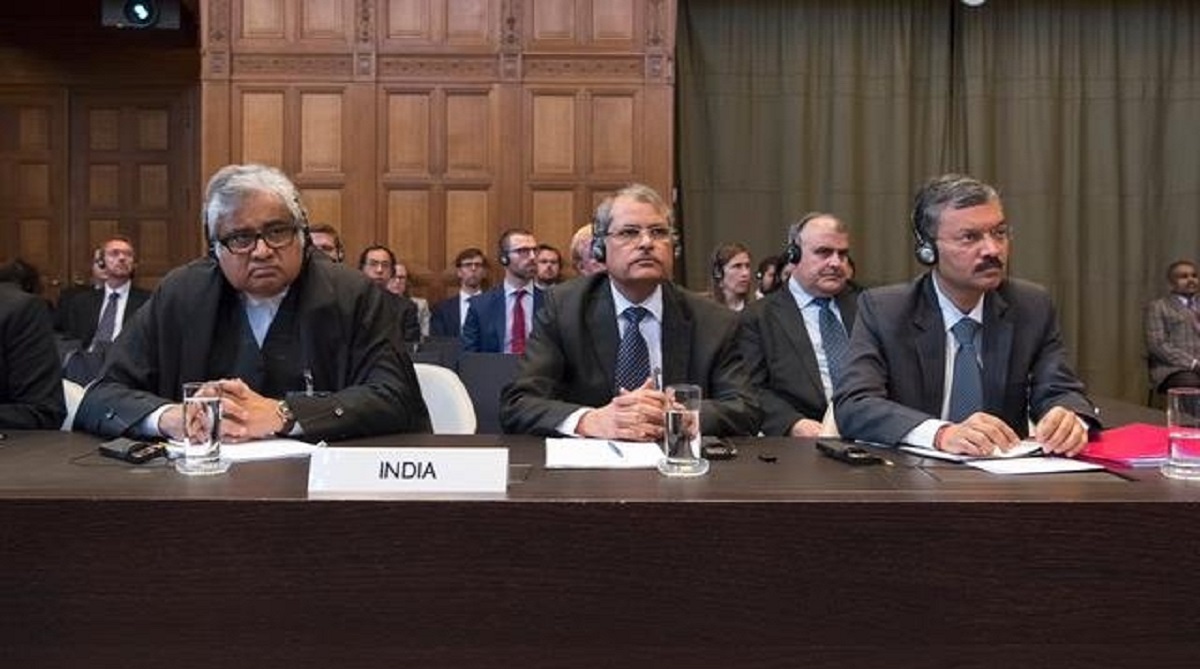Deepesh, Naman added to India U-19 team as injury replacements
D Deepesh and Naman Pushpak have been named as replacements in the India men’s U19 squad for the upcoming tour of England, scheduled from June 24 to July 23.
Pakistan said Jadhav was a serving commander in the Indian Navy and was involved in subversive activities inside Pakistan.
SNS | New Delhi | February 18, 2019 5:33 pm

Indian side is being represented by Harish Salve. (Image: Twitter/@airnewsalerts)
The International Court of Justice (ICJ) is holding a public hearing in the Kulbhushan Jadhav case from Monday at The Hague, Netherlands, where India and Pakistan are presenting their respective arguments before the top UN court.
The public hearing is expected to go on for four days.
Advertisement
The Indian side is being represented by Harish Salve, while, for Pakistan, Khawar Qureshi will present the case.
Advertisement
The hearing comes three days after the deadly Pulwama terror attack in which 44 CRPF personnel lost their lives. Since then, the relations between the two South Asian neighbours are under great strain.
Kulbhushan Jadhav is an Indian national. The Pakistan government claims that he was arrested on March 3, 2016, during a counter-intelligence operation in Balochistan, on charges of “terrorism and spying” for India’s intelligence agency, the Research and Analysis Wing (RAW). While Indian foreign ministry contended that Jadhav had been “kidnapped from Iran and his subsequent presence in Pakistan has never been explained credibly.”
Pakistan said Jadhav was a serving commander in the Indian Navy and was involved in subversive activities inside Pakistan. The Indian government acknowledged Jadhav as a former naval officer but denied any current links with him and maintained that he took premature retirement and was abducted from Iran.
A Field General Court Martial in Pakistan sentenced Jadhav to death on April 10, 2017, which was stayed by the International Court of Justice (ICJ) on May 18, 2017.
Harish Salve, starting his argument, told the ICJ that Pakistan has no substantive defence and is indulging in malicious acts, adding that Pakistan’s acts are “an egregious violation of the Vienna Convention.”
The main points made by Harish Salve:
Proceedings adjourned in the International Court of Justice for Tuesday, February 19.
(With agency inputs)
Advertisement
D Deepesh and Naman Pushpak have been named as replacements in the India men’s U19 squad for the upcoming tour of England, scheduled from June 24 to July 23.
NCP founder Sharad Pawar on Monday questioned the central government’s “neutral” stance about events in the Gaza strip, and said India’s present stance of 'neutrality' is not in line with its traditional position.
He also thanked Cyprus for reiterating its support for India’s permanent membership of a reformed UNSC as he held wide-ranging talks with Cyprus President Nikos Christodoulides in Nicosia.
Advertisement
